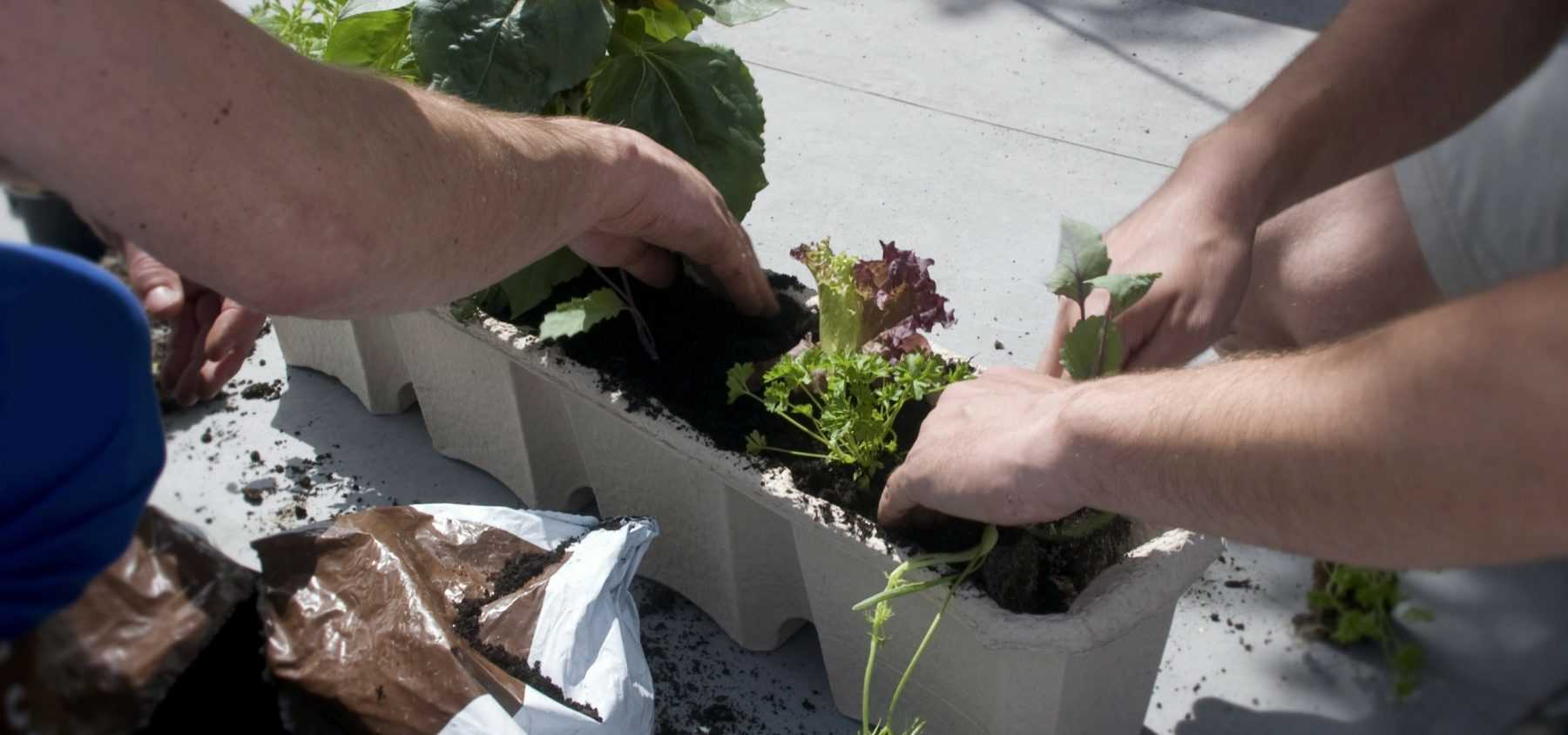
The balcony vegetable garden
our tips for success
Contents
Setting up a vegetable garden and growing vegetables on a balcony, terrace or any other impermeable surface is entirely possible. It can even be easier than growing in open ground, provided you follow a few essential principles.
The right exposure
Most vegetable plants require warmth and at least 6 hours of sunlight per day to thrive. Tomatoes, courgettes, peppers, chillies, aubergines… should be planted in full sun, while other vegetables like Swiss chard, sorrel and most herbs will prefer partial shade, especially in southern France. Therefore, carefully observe your intended growing space before starting, particularly in urban areas where shadows from neighbouring buildings can be significant.
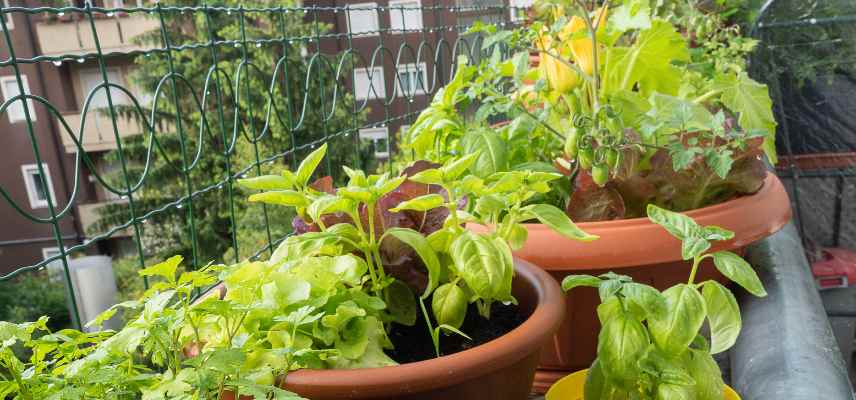
Most vegetables need sunlight: your balcony should receive sufficient sunshine and warmth
Read also
The balcony vegetable gardenSuitable containers
While almost any container will do, some are better suited than others.
Whatever you choose, the ideal container is:
- large enough, but also deep enough (30-40 cm) to hold sufficient growing medium and allow for potential root vegetable cultivation (carrots, turnips…),
- pierced with holes so excess water can drain easily,
- lightweight, especially on balconies where overloading should be avoided (generally no more than 350 kg per square metre, though it’s wise to check with the building contractor if planning extensive cultivation),
- ideally, breathable to allow plant roots to develop properly without becoming pot-bound.
Plastic pots and containers are economical, especially if recycled, but they tend to overheat in sunlight. Large terracotta pots are a good alternative, though heavy and often needing winter storage as they’re usually frost-sensitive. Fabric grow bags (like Bacsac® or Smartpot) are very practical and benefit from being lightweight. Finally, many purpose-built raised planters and vegetable beds designed for urban gardening are commercially available.
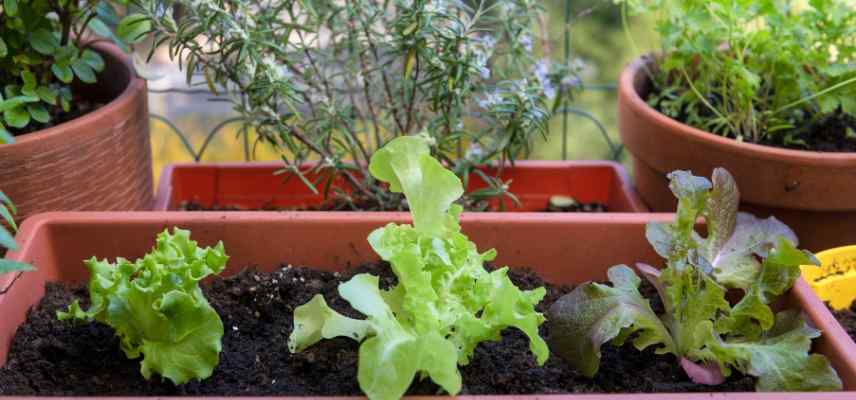
Planters, pots… it doesn’t matter, but containers must have drainage holes in their base.
Discover other Vegetables for patios and balconies
View all →Available in 1 sizes
Available in 1 sizes
Available in 1 sizes
Available in 1 sizes
Available in 1 sizes
Available in 1 sizes
Available in 1 sizes
Available in 1 sizes
Available in 1 sizes
Available in 1 sizes
Quality compost, regularly fertilised
Whether they are “hungry” or not, vegetables need a quality growing medium. Rather than opting for a budget compost, choose a high-quality compost, rich in nutrients, but also moisture-retentive without being excessive.
As the growing medium depletes quickly, we recommend the following to maintain its effectiveness:
- for demanding vegetables, apply a liquid fertiliser during cultivation,
- maintain quality and fertility (the compost can then be reused for several years) with regular additions of compost.
For this, using a worm composter is ideal: the “worm tea” acts as a liquid fertiliser while the compost provides long-term nourishment. You can also use a Bokashi bucket, very practical for apartments.
⇒ Discover our guide to choosing the right composts and fertilisers for balconies, terraces and small gardens.
Watering: Under Close Watch!
In pots or containers, the soil tends to dry out much faster than in open ground. Watering should therefore be regular: never let the compost dry out completely (it would become very difficult to rehydrate), but avoid waterlogging. In summary, water moderately but more frequently than in open ground. As with vegetable gardens outdoors, mulching is beneficial as it retains moisture: hemp mulch, buckwheat hulls or cocoa shells are both effective and decorative.
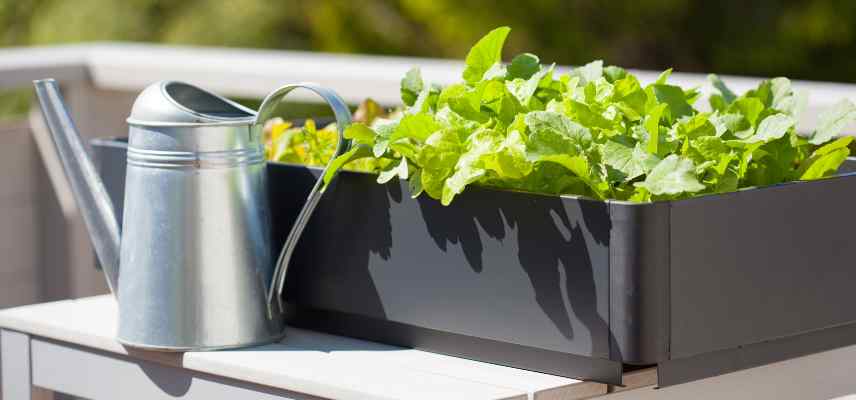
Watering requires even more attention in small spaces and containers.
Suitable vegetables but also flowers!
Almost all vegetables and aromatic herbs can be grown in pots or grow bags, provided the quantity and quality of the growing medium are sufficient for their proper development. To enjoy a wide range of vegetable plants in a limited space, it proves advantageous to opt for compact varieties that are particularly well-suited to container cultivation.
Finally, to complete your kitchen garden, we encourage you to add some flowers (dwarf cosmos, nasturtiums, small zinnias) which will give your balcony or terrace a lovely appearance while attracting valuable pollinators.
- Subscribe!
- Contents


































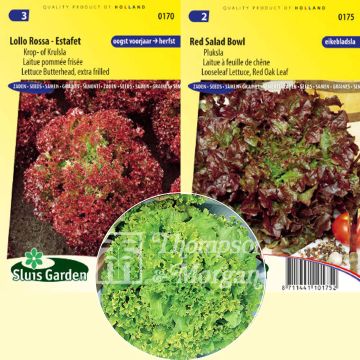
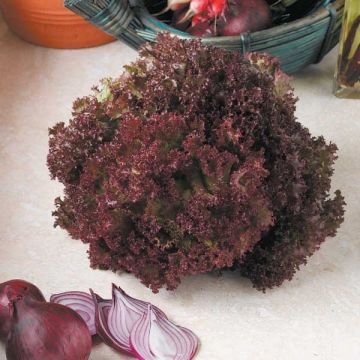
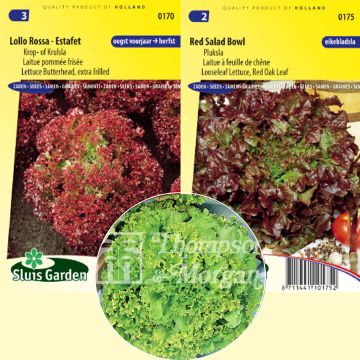

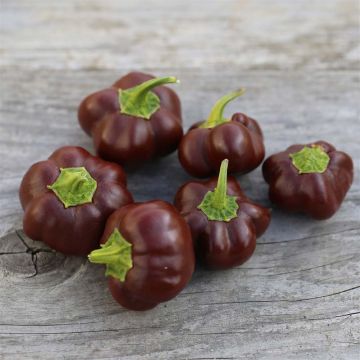
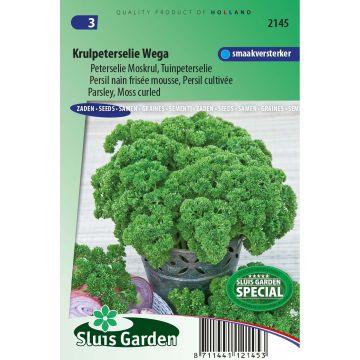
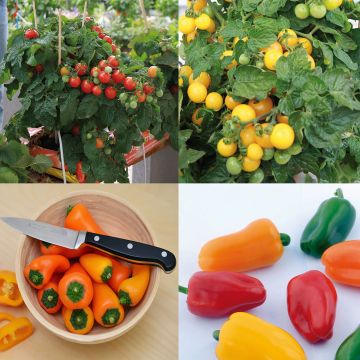

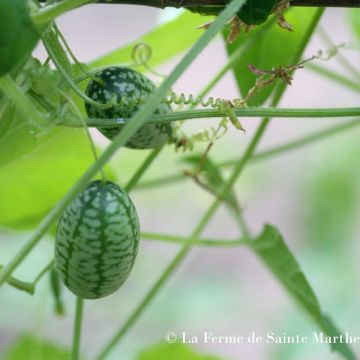
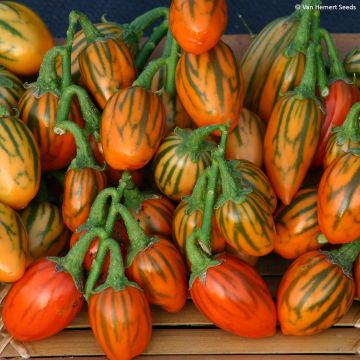
Comments